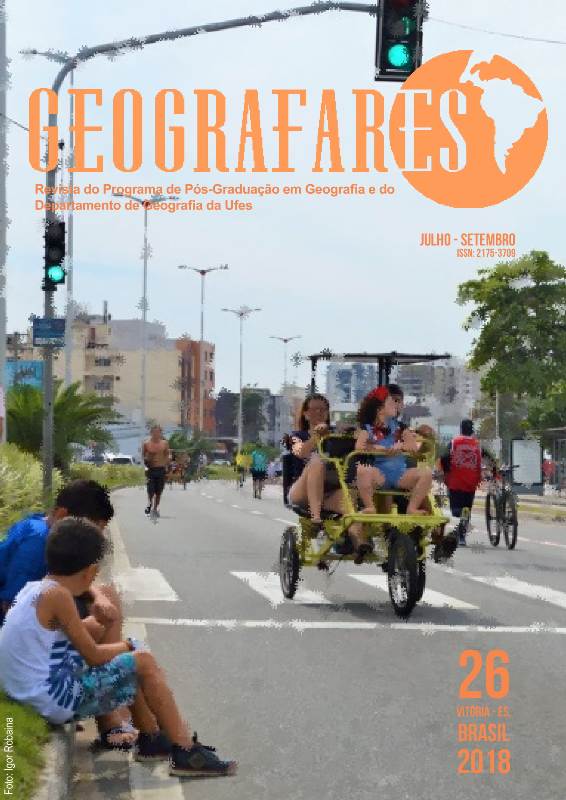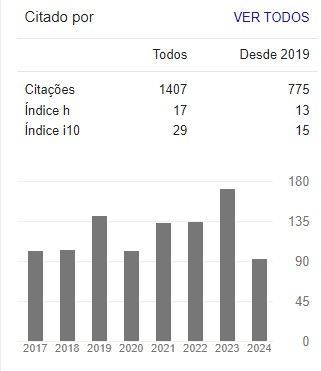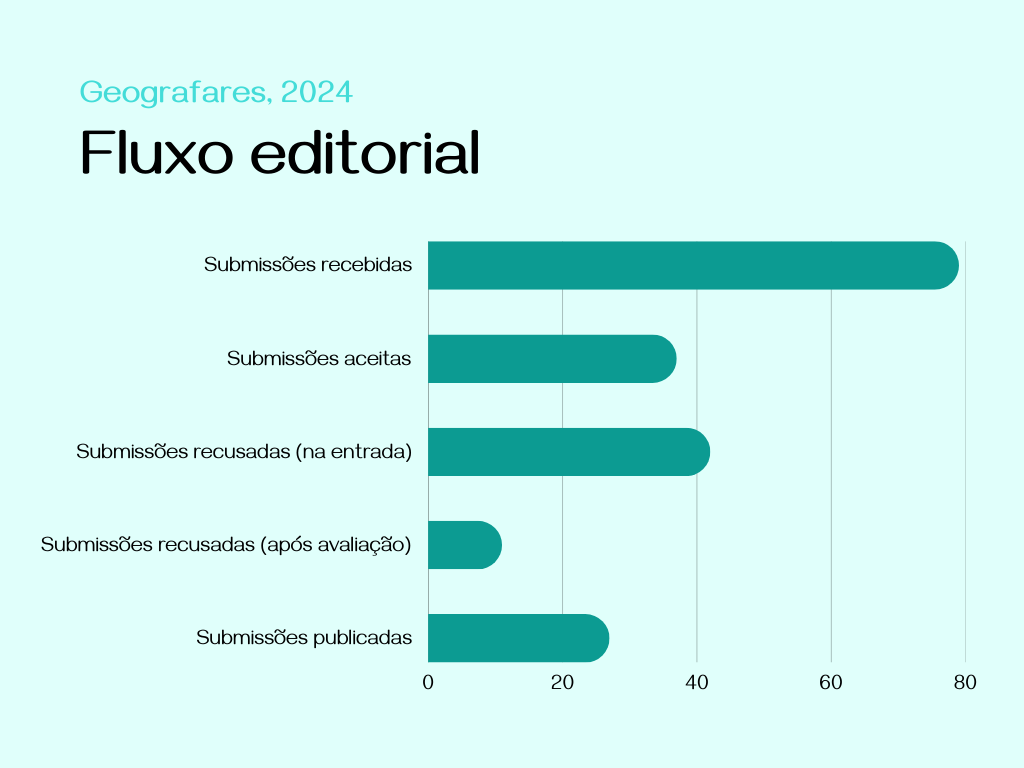Public spaces as political spaces: what does it mean?
DOI:
https://doi.org/10.7147/GEO26.20997Abstract
This article proposes to discuss the conditions for the transformation of public spaces into political spaces and to respond how this occurs. The thesis defended is that public spaces are spaces of everyday urban social and do not have a political essence, although they may become political spaces when invaded by phenomena of politics that temporarily transform their routines and their usual public. The text is divided into three parts. In the first, politics is conceptualized as an institutional and operational system for resolving conflicts of interest, presenting the risks of the fallacy, very common in the sociological literature, of considering politics as an abstract sphere. In the second, the political space is presented as a concept, that despite the origin in political science, was appropriated and expanded in political geography as a space for action of public policies and laws, but also for social movements and political acts. In the third part, the arguments of the central thesis of this text are elaborated, answering the question about the circumstances in which the public spaces can turn into political spaces.
Keywords: Political space; public space; political mobilizations.
Downloads
Downloads
Published
How to Cite
Issue
Section
License
Copyright (c) 2018 Geografares

This work is licensed under a Creative Commons Attribution 4.0 International License.
Copyrights Declaration
Authors who publish in the journal agree with the following terms:
- Authors will keep their copyrights and grant the journal the right to their first publishing, simultaneously licenced under Creative Commons Attribution License which allows sharing their work with authorship recognition and initial release through this journal.
- Authors may sign additional contracts separately diffusing a non-exclusively version of the paper published in this journal (i.g. publishing in institutional repository or as a book chapter), once citing the authorship and initial release through this journal.
- Authors are encouraged to publicize and diffuse their paper online, for example onto institutional repositories or on their personal websites.



























